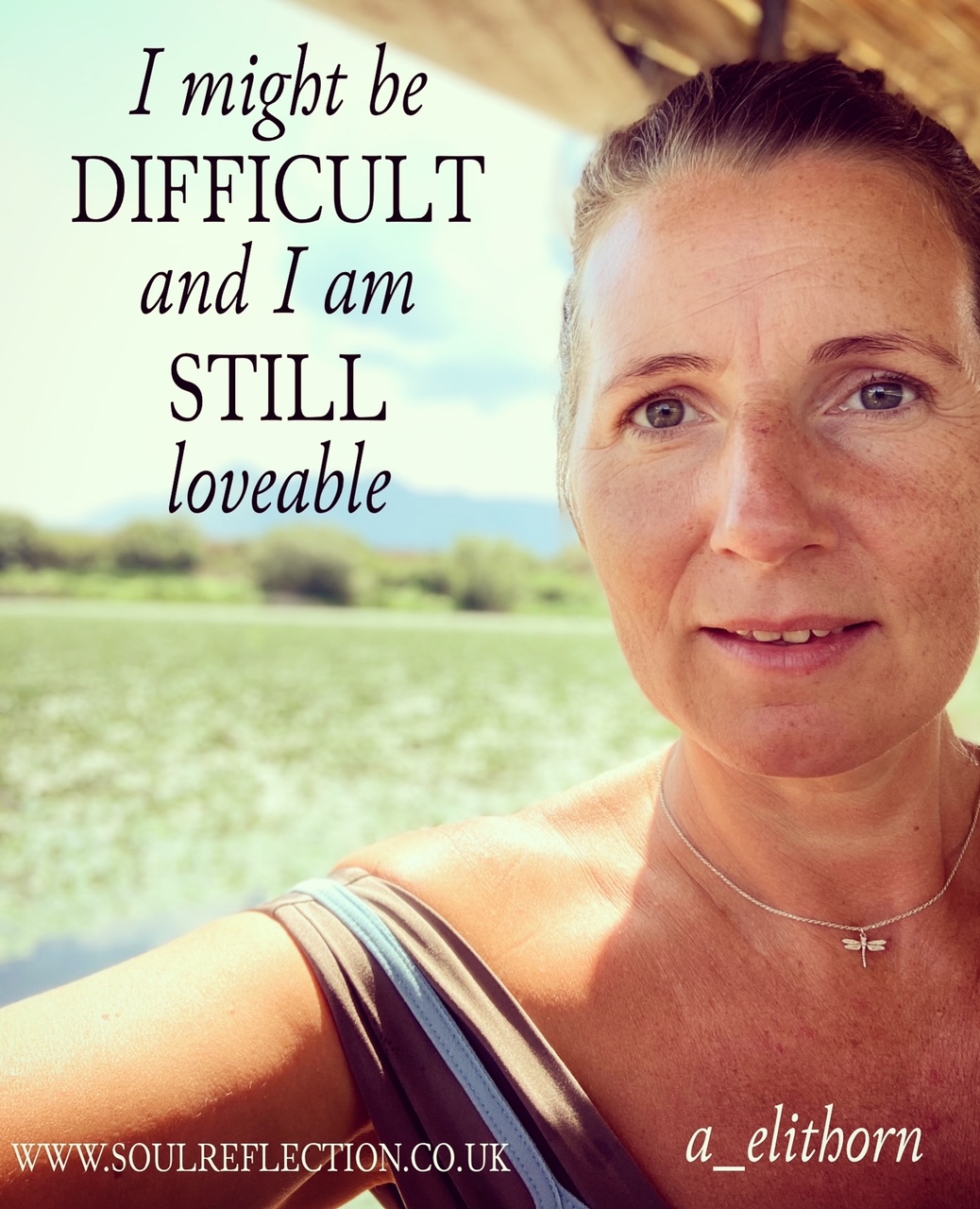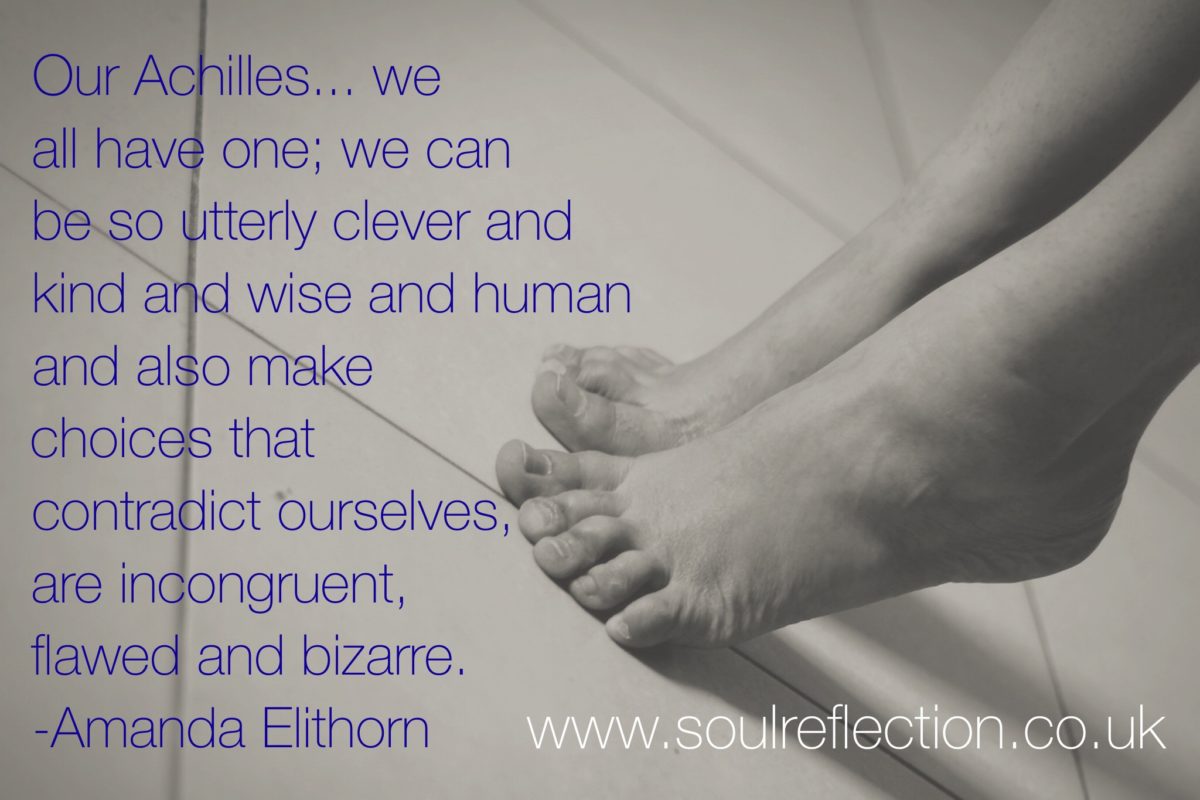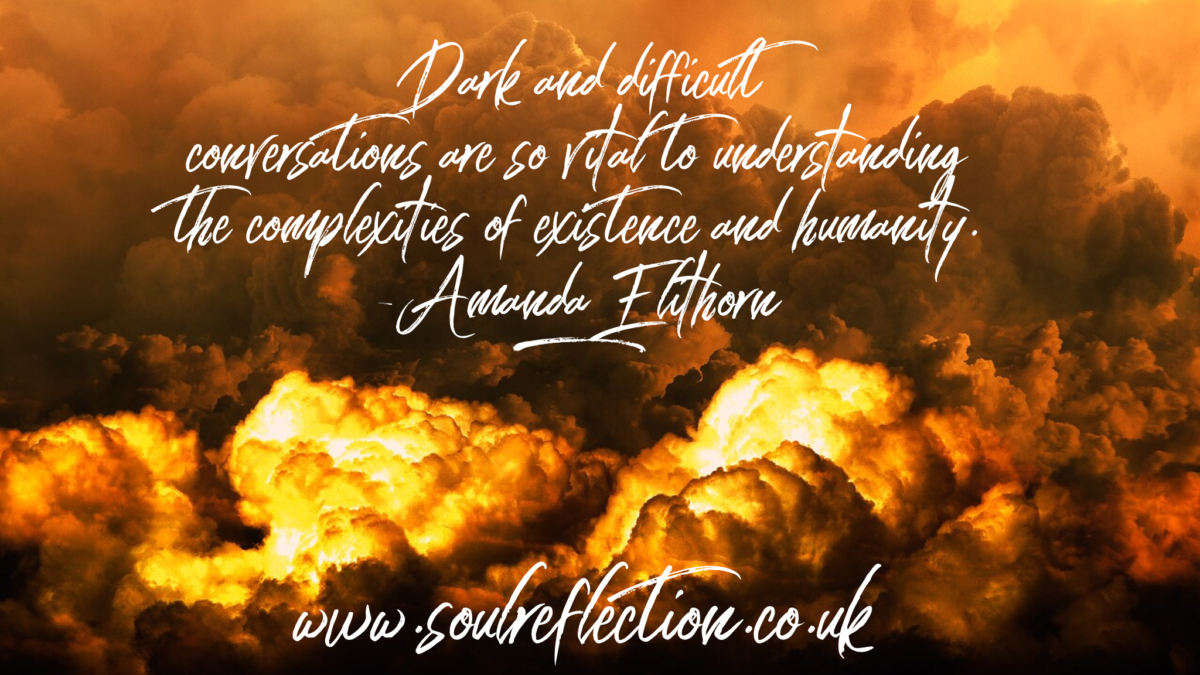The topics that I write about can vary from parenting, to society, to truth speaking, to relationships, to introspection. How do I decide what theme to address? By whatever is haunting my soul.
My writing is an exorcism, when a thought or experience is lingering within, sounding and repeating around my heat and heart; when it wakes me at three in the morning to ponder and dissect. Sometimes the only way to help myself is to write it down.
So here I am at 4.30am, fretful and agitated, looking at a repeat pattern in my life. If it’s on repeat, I cannot ignore my need to face it head on and acknowledge what is mine.
When I spoke to my mother during a therapy session, a number of years ago, I expressed the feeling that I felt ‘tolerated rather than loved’ and I received a nod and the line, ‘that’s because you’re so difficult’. In a reconciliatory conversation, it arose again, ‘even when you were 8 you were already difficult’. And even more recently, ‘well you just make people uncomfortable’.
This is the message I have taken into my system and that then plays out in various forms within my social dynamics, as all of our programmed patterns do.
This past week has been a perfect example. Two friendships, two conversations, two opposing results, but all that lingers is that message.
For both, I felt something was ‘off’, the vibe wasn’t clean and, with a nod to my inculcation, I presumed I had done something to upset. To both I leave messages offering my willingness to chat and find resolution if there is something I have inadvertently erred on.
From one I receive a beautiful, heartfelt response. They are overwhelmed, struggling, distracted. It wasn’t me, just life. She cries, I cry for her. We hug. All is well. And I am grateful that I took the courage to check – clarity, resolution and reconnection. This is when being ‘difficult’ can work – pushing me to make things right. Except when it doesn’t.
The other friend did not respond to my overtures of reconnection and resolution and here I become fretful – was my message triggering instead of healing? Am I being difficult l? Have I made them uncomfortable? I make my husband listen to it, was there anything I did wrong? Nothing, he says, you’ve said nothing wrong, but you believe that you must have done something wrong. Yes! Because I’m difficult.
What if this other friend is also struggling doesn’t want to share? What if I have pissed them off but they don’t want healing? Where does that leave me? In this repeat pattern, this intrinsic messaging – I don’t know what I’ve done that is so terrible to deserve this disconnect, I only know that it is because I am difficult.
It is bland and generic and all encompassing. Without specifics it is all of me and maybe none of me. My self-protection is to prostrate myself energetically, open my chest and heart and beg to be told. I would prefer to hear the worst of their thoughts than this infernal and eternal not knowing – why am I so difficult?
The power of our patterns, the messages received by parents, teachers, loved-ones that niggle and jiggle and play out over and over again until we stare them in the face and ask – are they true? Am I so difficult? Or perhaps, is it okay to sometimes be difficult? Can I still be loveable and difficult? Because they have seemed so very mutually exclusive until now.
I don’t know that I am ever going to stop reaching out towards reconciliation and connection because when I have those moments, like I did with the first friend this week, it makes the sick and scared feeling all worth while. But I have a lot of work to do on those that don’t want to meet me there, for all their very own acceptable and personal reasons and patterns too. I cannot force others to reassure me that I am not really so difficult; that must come from within.
Goodness, it is a pattern I want to break; and boy, that messaging is super hard-wired. I can be pottering happily along having a lovely day only to hit someone’s energy wall and wonder – did I do that? Bam! Trigger! Messaging! Pattern! Repeat!
So now I will exorcise this pattern and speak it (write it) out loud. Remove the silent shame and shout: ‘I might be difficult and I am still loveable.’
And I’m going to put that on repeat instead.
First published on social media on 2nd October 2022



